Letter to the stakeholders
Dear Readers,
We are pleased to introduce the 2024 Sustainability Report with a few comments and reflections, marking our continuous journey of structured reporting and open sharing with you on the key contextual, social, environmental, and governance topics we have managed and addressed over the past year.
In many respects, the global geopolitical landscape in 2024 exhibited dynamics similar to the previous year. The war between Russia and Ukraine continues with no sign of resolution, conflicts in the Middle East have expanded, and acts of piracy in the Red Sea have continued to affect shipping routes—including those for steel products. Natural gas and electricity prices are still under pressure.
According to major statistical indicators, the European industrial production has been in continuous decline since February 2023, and recovery forecasts for many strategic sectors such as automotive, construction, household appliances, and general mechanics appear to be postponed to the second half of 2025.
The economic and social impact of this crisis, the outcomes of political elections in many parts of the world (particularly in Europe and in the USA), the ongoing economic slowdown in China, and the technical and scientific debate on the real potential for replacing non-renewable energy sources have gradually sparked and reinforced new points of reflection on the methods and on the timelines of the ecological transition.
As a company with deep local roots and a strong awareness of our social role, we see it as both a duty and an opportunity to align our daily work with people’s protection and enhancement—those who work for or interact with Padana Tubi in various ways—and the safeguarding of the environment around us, in all the ways this commitment can be interpreted.
At the same time, we firmly believe that setting unfeasible climate or environmental goals, imposing transition-related costs or regulations that heavily burden European companies or encouraging the use of technologies that are not truly green—or are problematic in other respects—are not the right answers to a valid and pressing need.
Therefore, we hope that Italian and European political institutions will act swiftly with concrete measures to make the ecological transition an opportunity rather than a threat for companies and workers, so that it becomes a stimulus for innovation and the improvement of processes and products, without creating risks of isolation or loss of competitiveness in global markets.
From a strictly business perspective, you will read in these pages that we have renewed and maintained existing organisational certifications such as ISO 9001, ISO 45001, ISO 14001, ISO 14064, and EPD for all product categories, and we have begun the process of obtaining ISO 50001 certification for energy efficiency.
We have delivered training courses for our employees on these topics to spread the values behind formal procedures throughout the organization. The course organised by our internal health and safety team titled “Safety is a State of Mind,” was particularly appreciated. It deepened employee involvement, awareness, and dialogue in relation to the workplace safety through the analysis of real-life situations.
In terms of supporting our local community, Padana Tubi continued its longstanding collaboration with Third Sector organisations and responded to emergencies caused by unexpected climate events.
In this context of uncertainty, change, and opportunity, we have successfully worked to maintain our market share, focusing on our long-standing core countries—especially in Europe—and key end-use sectors such as construction, mechanical engineering, and infrastructure.
The decline in sales revenue relates solely to value, not to the delivered volume of products; this confirms the strength of our values in doing business: people first, respect for rules, listening to clients, transparent communication, product and service quality, and a straightforward approach to all stakeholders.
These values guide and reassure us as we look ahead to future growth paths and strategies.
We leave you to the reading of these pages, as always open to any comments or suggestions you may wish to share.
Alfieri Family
A path of growth and awareness
In recent years, the steel industry has undergone a significant shift in its focus on sustainability, with increasing commitment to reducing the environmental impact of production processes. Investments in this area are constantly rising, reflecting a change in perspective that involves the entire supply chain.
Padana Tubi has integrated these principles into its business strategy, initiating a structured path that has enhanced both awareness and growth through a sustainability-focused lens. The publication of the fourth Sustainability Report is a concrete step in this direction, reaffirming the company’s commitment to the stakeholders’ expectations and to a model based on transparency and accountability.
The value chain: a structured and controlled process
The activities that make up Padana Tubi’s value chain are divided into three main categories, each of which plays a strategic role in value creation:
- Upstream activities: these refer to processes involving suppliers of goods and services, particularly of steel mills. These activities take place both in Italy and abroad, in European and non- European Countries;
- Own operations: these include all processes that take place within Padana Tubi’s facilities, from the processing of raw materials to the production of the finished product;
- Downstream activities: these cover the stages following the distribution of the finished product to end customers, both in Italy and internationally, through to the end of the product life cycle.
Padana Tubi’s value chain unfolds along a flow that begins with the extraction of raw materials and extends to the recovery of the product at end-of-life, involving multiple stakeholders at every stage of the production process. The diagram below provides a clear visual representation.
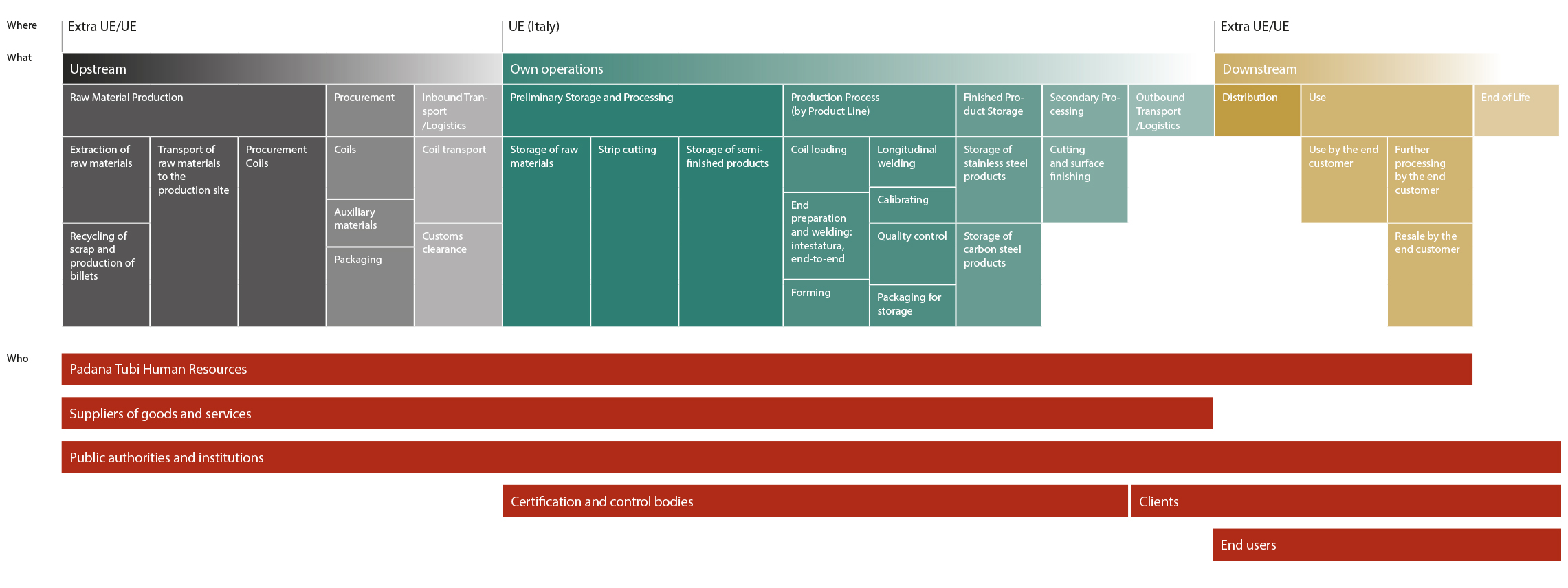
The value of stakeholders: guiding a shared and solid direction
Stakeholder engagement is a strategic element for understanding their expectations, interests, and evaluations. A careful and proactive dialogue allows the company to define its objectives more consciously, supporting the decision-making process and creating shared value.
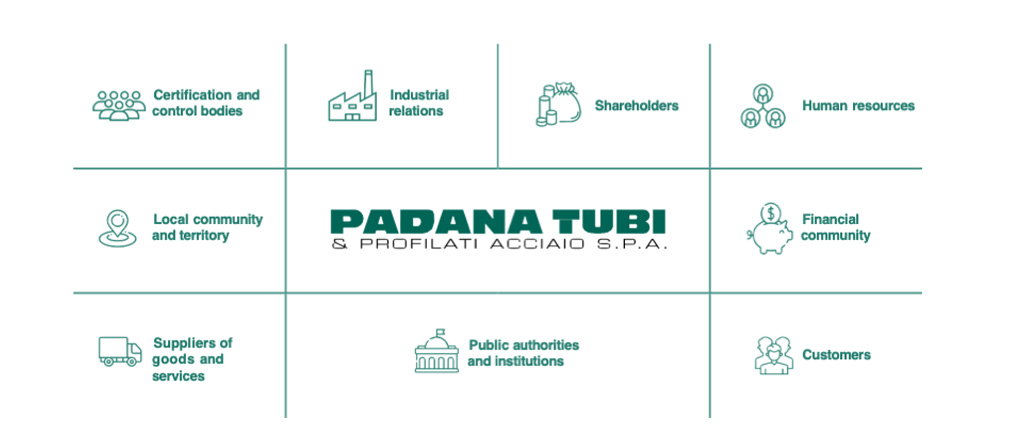
Double materiality assessment
In a spirit of transparency and responsibility, starting with this Sustainability Report, Padana Tubi has voluntarily adopted – before the regulatory obligations introduced by the European Corporate Sustainability Reporting Directive (CSRD) – the double materiality approach.
The analysis, carried out with the support of an external consultancy firm, made it possible to evaluate both the impacts generated by the company’s activities and across its value chain on people and the environment (impact materiality), and the ESG risks and opportunities that may influence the business model, financial performance, and company value in the short, medium, and long term (financial materiality).
The table provides a summary of the outcomes from Padana Tubi’s double materiality analysis in relation to sustainability matters. The topics have been aligned with the nomenclature used in the previous reporting period.
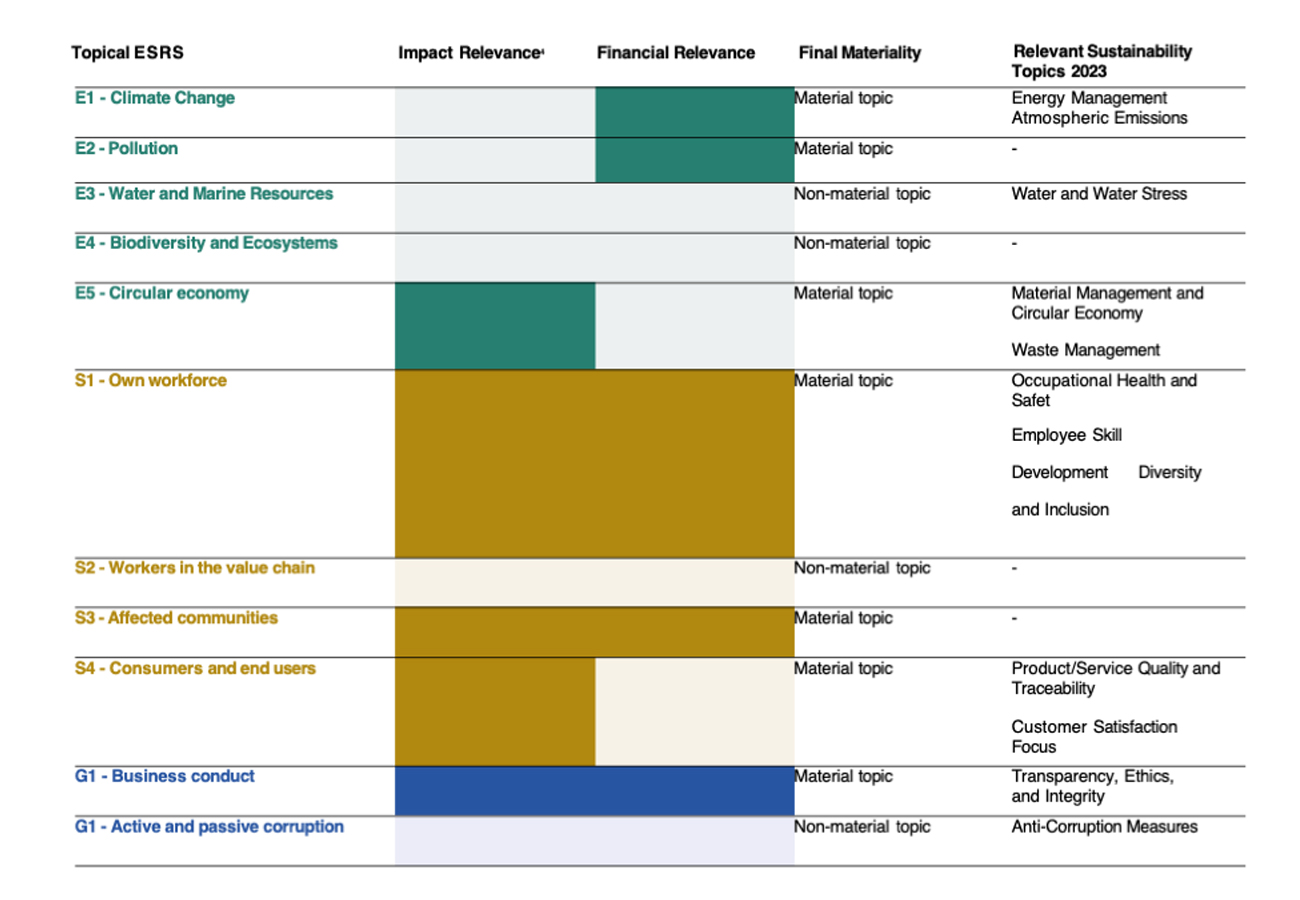
Economic performance and business continuity

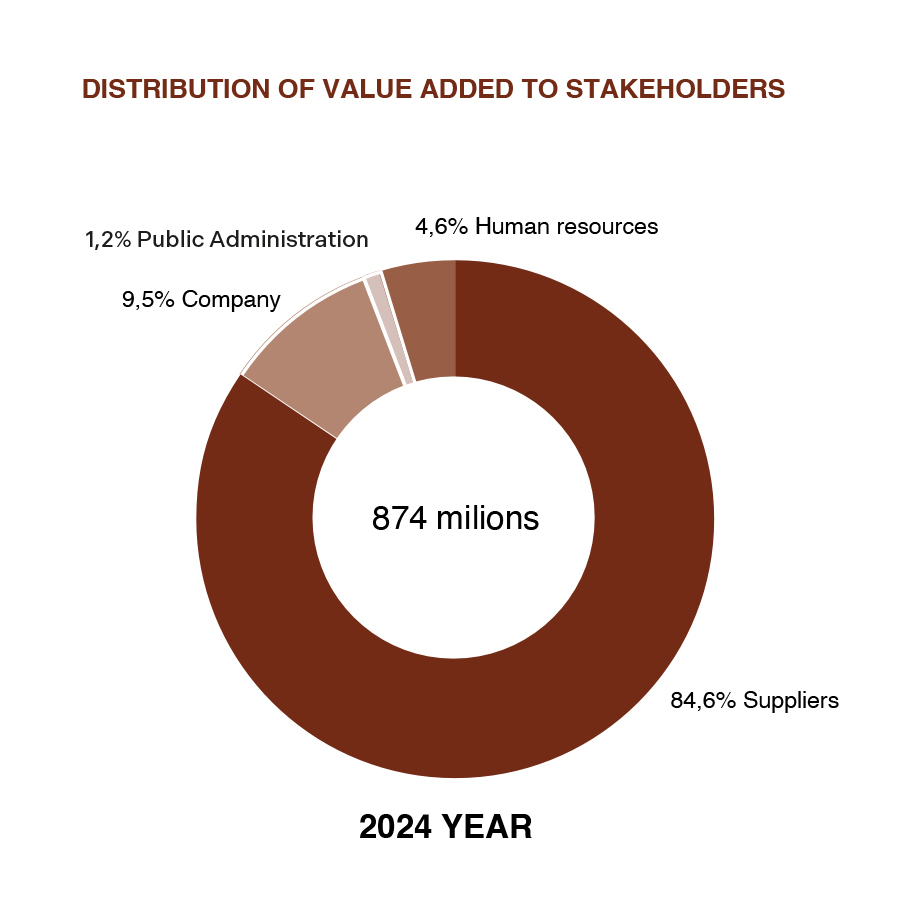
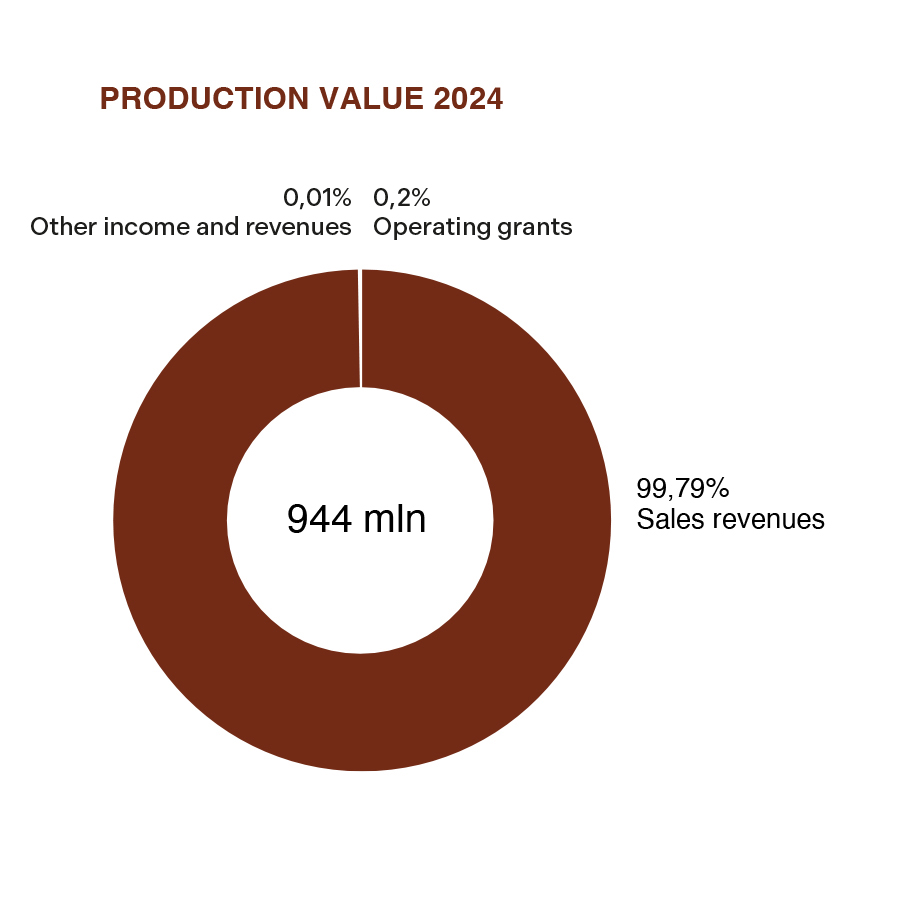
Padana Tubi maintains a strong bond with its roots in the Emilia region, setting itself apart in a sector increasingly driven by delocalisation. This local grounding complements an international outlook, with a sales network reaching over 60 countries. 28% of sales are generated in the Italian market and 72% are made through exports, mainly within Europe.
Padana Tubi’s customers are mainly steel distributors and service centres, which in turn resell the products or carry out further processing before sale. These processes include length reductions, surface treatments, laser perforations, and end forming or deformation of tubes.
As of 31 December 2024, Padana Tubi had 792 active customers, of which 309 were based in Italy and 483 abroad, with a strong presence in the European market.

For further details please contact sustainability@padanatubi.it




